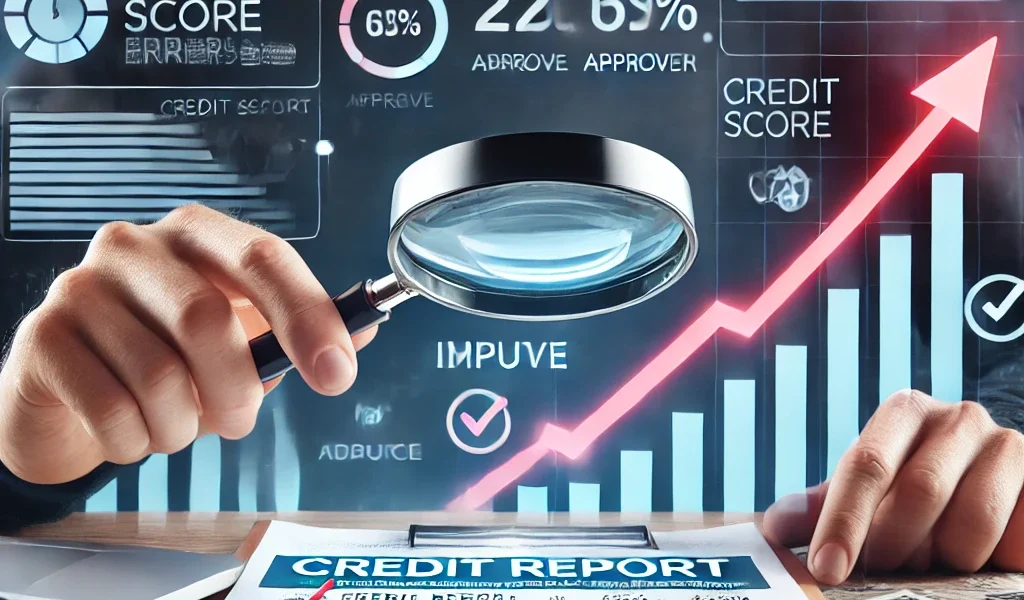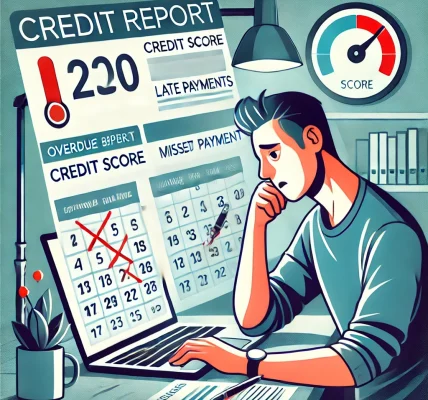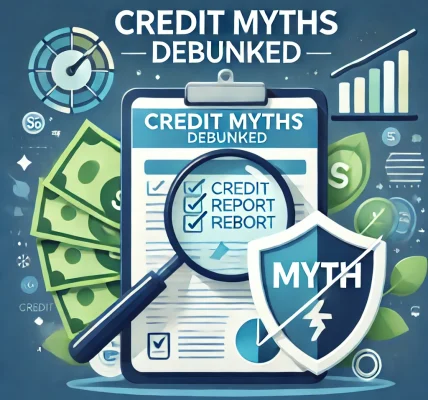Your credit report plays a crucial role in determining your financial health. It affects your ability to secure loans, credit cards, and even employment opportunities. But what happens when there’s an error on your credit report? Inaccurate information can negatively impact your credit score and make it harder for you to achieve financial stability.
This DIY guide will walk you through the process of disputing credit report errors legally and improving your credit score without falling into any legal trouble.
1. Understanding Credit Report Errors
A credit report error occurs when incorrect or outdated information appears on your credit report. These errors can be due to clerical mistakes, identity theft, or incorrect reporting by lenders. Here are some common credit report errors:
Types of Credit Report Errors:






Why Should You Fix Credit Report Errors? 


2. How to Obtain Your Credit Report
To find errors, you first need to access your credit report. You are entitled to one free credit report per year from each of the three major credit bureaus:



Steps to Get Your Free Credit Report:
- Visit AnnualCreditReport.com (official website for free credit reports).
- Choose reports from one, two, or all three credit bureaus.
- Review the reports carefully for discrepancies.
3. How to Dispute Credit Report Errors
Once you identify errors, you need to take action. Here’s a step-by-step guide to legally disputing incorrect information on your credit report:
Step 1: Gather Evidence



Step 2: Contact the Credit Bureau(s)
Each credit bureau has a dispute process that you can complete online, via phone, or by mail.
Dispute Online:
- Experian: www.experian.com/disputes
- Equifax: www.equifax.com/disputes
- TransUnion: www.transunion.com/disputes
Dispute by Mail:
If you prefer to dispute errors by mail, send a written dispute letter along with copies of supporting documents to each bureau:
Experian
P.O. Box 4500
Allen, TX 75013
Equifax
P.O. Box 740256
Atlanta, GA 30374
TransUnion
P.O. Box 2000
Chester, PA 19016

Step 3: Contact the Creditor Directly
If the mistake is due to a lender, notify them as well. Most lenders have customer service or dispute departments that handle such issues.
Step 4: Wait for Investigation Results
By law, credit bureaus must investigate disputes within 30 days and notify you of the results.
Step 5: Review the Updated Credit Report
After the dispute is resolved, the credit bureau will send an updated report reflecting any corrections.

4. How to Improve Your Credit Score After Fixing Errors
Fixing credit report errors is the first step. Next, you should take proactive steps to boost your credit score:
 Pay Bills on Time
Pay Bills on Time
- Set up automatic payments or reminders to avoid late payments.
- Even one late payment can hurt your score significantly.
 Reduce Your Credit Utilization Ratio
Reduce Your Credit Utilization Ratio
- Keep credit card balances below 30% of your total credit limit.
- Pay down high-interest debts first.
 Avoid Opening Too Many New Accounts
Avoid Opening Too Many New Accounts
- Each credit inquiry can lower your score temporarily.
- Only apply for credit when necessary.
 Maintain Old Credit Accounts
Maintain Old Credit Accounts
- Closing old accounts can shorten your credit history, impacting your score.
- Keep older accounts open even if you don’t use them often.
 Check Your Credit Report Regularly
Check Your Credit Report Regularly
- Monitor your credit report at least twice a year to catch new errors.
- Use free credit monitoring services for real-time alerts.
5. What to Do If the Credit Bureau Doesn’t Fix the Error?
If your dispute is ignored or not resolved, you have additional legal options:



6. Final Thoughts: Take Control of Your Credit Report Today
Disputing credit report errors is your right under the Fair Credit Reporting Act (FCRA). By regularly checking your credit report and taking immediate action on errors, you can improve your credit score, secure better financial opportunities, and protect yourself from identity theft.




